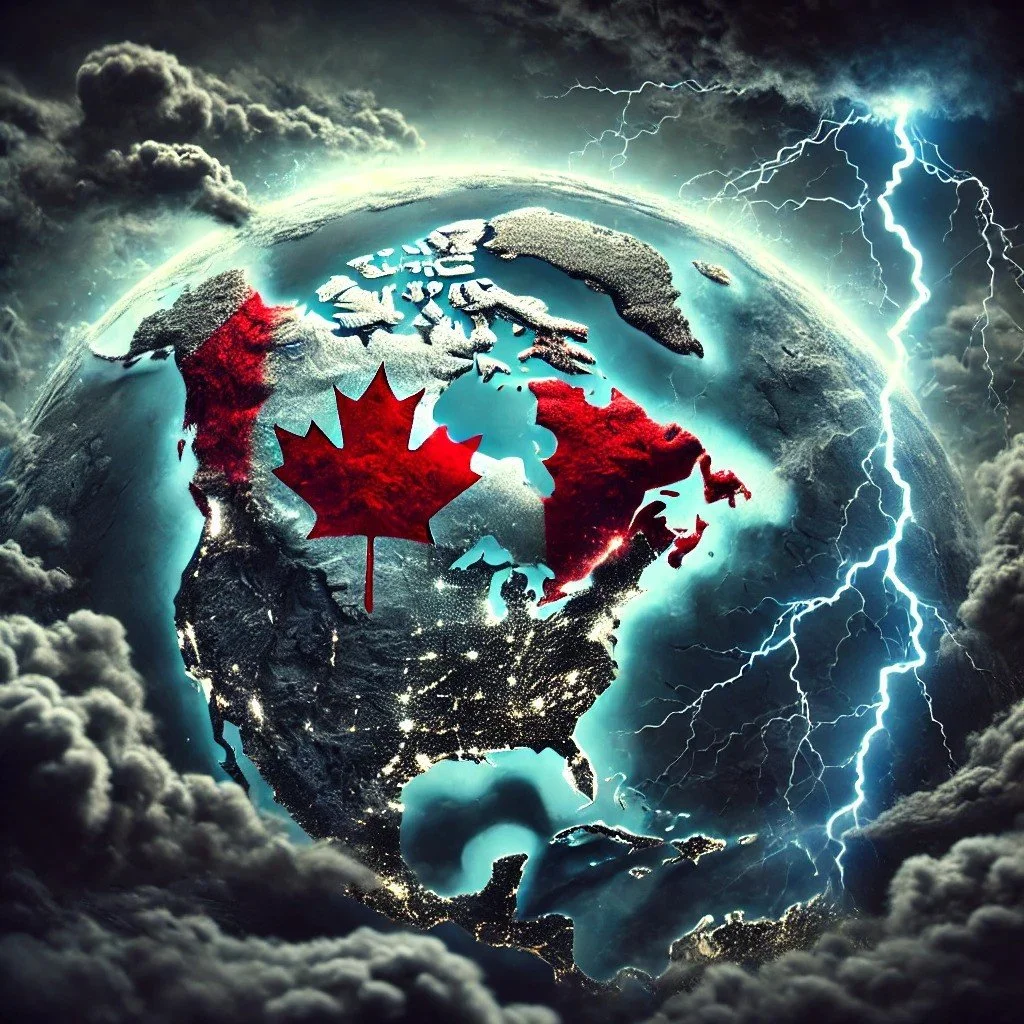Could Donald Trump Derail Canada's Property Market Recovery?
In the intricate web of North American trade, Canada's economic fortunes are deeply intertwined with those of its southern neighbour. Recent pronouncements from President Donald Trump, threatening to impose a 25% tariff on Canadian imports, have sent ripples through Canada's economic landscape.
These developments raise pressing questions: Do such threats "spook" investors, businesses, and property buyers in Canada? And how might they influence the nation's economic trajectory and the confidence of its workforce?
The Backbone of Canadian Exports
Canada's economic vitality is significantly bolstered by its export sectors. Key among these are oil and gas, automobiles and auto parts, agricultural products, and various natural resources. The United States stands as the primary destination for these goods, with approximately $1.9 billion worth of goods and services crossing the border daily, accounting for more than 20% of Canada's gross domestic product.
The imposition of a 25% tariff would render Canadian exports less competitive in the U.S. market. Industries such as energy and automotive, which are heavily reliant on U.S. consumers, would face immediate challenges. The energy sector, for instance, supplies the U.S. with 20% of its consumed oil, including the heavy crude essential for numerous American refineries. Tariffs could disrupt this symbiotic relationship, potentially leading to increased costs for U.S. consumers and a search for alternative suppliers.
The Wall Street Journal: How a Trump Trade War Puts Cheap Oil From Canada at Risk
The Domino Effect on Supporting Industries
Beyond the primary exporters, a network of supporting industries underpins Canada's export economy. Financial institutions, including banks and accounting firms, play a pivotal role in facilitating international trade. A downturn in export activities could lead to reduced demand for financial services, impacting profitability and potentially leading to job cuts within these sectors.
Moreover, industries such as transportation and logistics, which ensure the smooth transit of goods across borders, would likely experience decreased volumes, leading to potential layoffs and financial strain. The interconnected nature of these industries means that the repercussions of tariffs would be felt widely, amplifying economic uncertainty.
Regional Disparities: Provinces and Cities in Focus
The impact of potential U.S. tariffs would not be uniformly distributed across Canada. Provinces with economies heavily geared towards exports to the U.S. would bear the brunt.
Alberta
As the heartland of Canada's oil industry, Alberta would face significant challenges. The province's economy is deeply tied to energy exports, and tariffs could lead to reduced production, lower revenues, and job losses. Premier Danielle Smith has expressed caution against retaliation, highlighting the province's vulnerability.
Ontario
Home to a substantial portion of Canada's automotive manufacturing, Ontario's economy is intricately linked to cross-border trade. Tariffs could disrupt supply chains, increase production costs, and make Ontario-manufactured vehicles less competitive in the U.S. market. Premier Doug Ford has advocated for strong retaliatory measures, emphasizing the potential harm to the province's economy.
Quebec: With its diverse economy encompassing aerospace, agriculture, and energy, Quebec could see varied impacts. Premier François Legault has acknowledged the legitimacy of U.S. concerns but remains cautious about the province's response.
The Guardian: Canada’s provincial leaders in disarray over response to Trump tariff threats
As economic hubs of these provinces, major cities like Toronto, Montreal, and Calgary would also feel the effects. These urban centers host numerous businesses tied to export activities, and increased economic uncertainty could lead to reduced investment, slower growth, and potential declines in property markets as confidence wanes.
Investor and Consumer Sentiment: A Climate of Uncertainty
The mere threat of tariffs can have a chilling effect on investor, consumer, and homebuyer confidence.
Businesses may delay expansion plans, hold off on capital investments, or reconsider hiring, leading to a slowdown in economic activity.
Property buyers, wary of potential job insecurity, might postpone purchases, cooling a property market that was beginning to recover from the shock of high mortgage rates.
A poll commissioned by the Canadian Labour Congress revealed that Canadians are seriously concerned with the economic and employment impacts of potential U.S. tariffs, indicating a broader apprehension about the nation's economic future.
Canadian Labour Congress Poll: Canadians reject Trump’s tariff threats
A Calculated Response: Navigating the Economic Tightrope
In response to these threats, Canadian officials have emphasized the interdependence of the U.S. and Canadian economies. Prime Minister Justin Trudeau has highlighted that imposing tariffs would not only harm Canada but also lead to increased costs for American consumers, particularly in sectors like automobiles, lumber, and oil. He has also indicated that Canada is prepared to implement retaliatory tariffs, aiming to deter such measures.
AP News: Trudeau says Americans will pay more whenever Trump decides to impose tariffs on Canada
However, the path forward requires a delicate balance. While retaliation showcases resolve, it also risks escalating trade tensions, potentially leading to a tit-for-tat scenario that could further destabilize both economies. Engaging in diplomatic dialogues, seeking common ground, and reinforcing the mutual benefits of the longstanding trade relationship may offer a more sustainable solution.
Conclusion: The Road Ahead
President Trump's tariff threats undeniably cast a shadow over Canada's economic landscape, instilling caution among investors, businesses, and consumers. The potential repercussions span from immediate impacts on key export sectors to broader effects on supporting industries and regional economies.
Navigating this period of uncertainty will require strategic foresight, adaptability, and a commitment to preserving the resilience of Canada's economy. By leveraging its diversified economic base, strengthening internal trade, and engaging in proactive diplomacy, Canada can mitigate the challenges posed by external pressures and continue to chart a course toward sustained prosperity.



